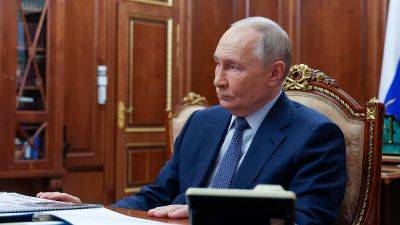Euroviews. Peace in Ukraine needs more than a plan
As the Trump administration is preparing an attempt to stop the war in Ukraine, Europe fears, for good reason, that it won’t have a place at the table where decisions are made.
It also fears a deal done at the expense of not just Ukraine but also the EU itself. No amount of pleading is likely to change that unless Europe itself brings itself something tangible to that table: a European Peace Plan of sorts that is designed to support but also guard-rail Trump’s own peace plan.
To begin with, the likelihood of a peace deal next year remains modest. As long as Russia continues to make advances on the front, there is little reason for Moscow to seek a deal that is minimally respectful not just of Ukraine’s territorial integrity but also of Ukraine’s future sovereignty and freedom of action.
It may sound like “proposals” will amount to turning Ukraine into another vassal state like Belarus, posing even greater security problems for the rest of Europe. As long as Russia has a realistic chance of achieving its aims through war, why should it give up in negotiations what it can achieve unilaterally on the battlefield?
The road to peace and the negotiating table needs several pit stops. And Europe has to prepare them well.
First, the road to peace needs to see the Russians stop advancing. For this, Ukraine needs to stop them.
Even the current amount of military aid is insufficient to achieve this. The most urgent need is an increase in military support to Ukraine.
Once the Russian army is stopped, one must send credible signals that squash Moscow’s hopes for a renewed offensive after adapting to new Ukrainian capabilities.
So, a credible commitment to finance and help Ukrainian defence in the long term is needed. And this








